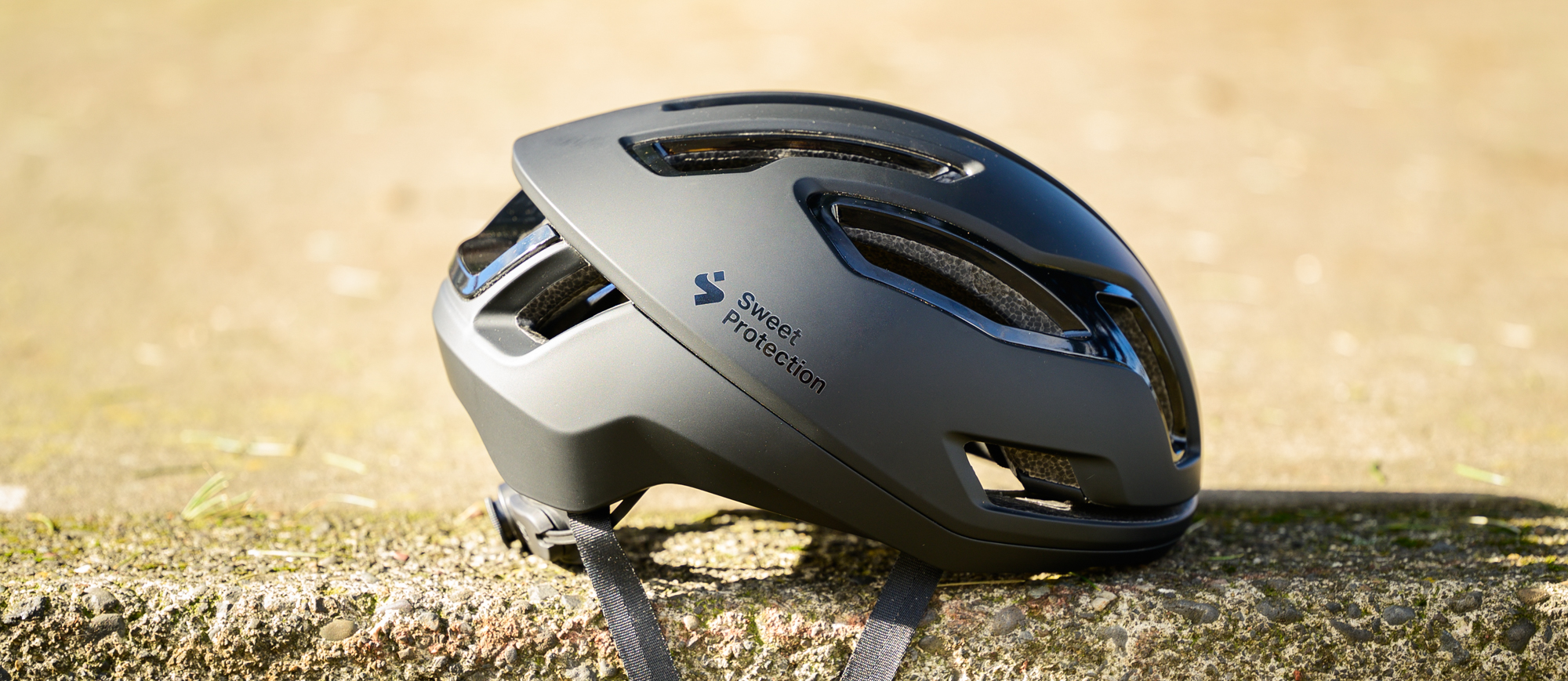Cyclingnews Verdict
The Sweet Protection Falconer 2Vi MIPS is a helmet that doesn’t capture headlines. It’s got the #2 rating from Virginia Tech, it’s aero-optimised but lacks a specific claim, it’s generally comfortable, has good ventilation, and the styling is understated. In short, this helmet is easy to overlook despite being really good. Despite that, there are a lot of people who start every helmet discussion by stating how important it is to be able to stash sunglasses. If that’s you, no one does it better than Sweet Protection.
Pros
- +
Excellent ventilation
- +
Extra ventilation at the brow
- +
Holds sunglasses securely
- +
Magnetic vent covers available
- +
#2 rating with Virginia Tech
- +
Low bulk
- +
Simple to adjust
Cons
- -
Lacks a specific aero claim
- -
Rear cradle can come apart
- -
Not that much ponytail space
You can trust Cyclingnews
Price: $250 / £219 / €249
Available colours: Dusk, Lava, Lush, Matte Black, Satin White, Woodland
Rotational Impact technology: MIPS Air
Weight: 286g as measured in size M/L
My job is to learn about cycling technology. As such, when I ride with people I rarely see a product in use that I don't recognize. That's even more true if we are talking about helmets. I cover the best road bike helmets buyers guide and if it's available in the US, and sometimes even if it's not, I've not only heard of it but I've probably ridden with it. So the first time I rode with the PAS Normal crew and noticed a helmet I'd never seen, it surprised me.
It turns out that the company making helmets for PAS Normal is a Norwegian company called Sweet Protection. The two companies aren't really linked other than PAS Normal sells unique colours of the Sweet Protection aero helmet. Still, given the excellent PAS Normal athlete roster, that may be where you've seen Sweet Protection also.
If so, the reason we aren't familiar with Sweet Protection is that the brand is relatively new. The company has only existed as an idea since 1988 and officially it's just shy of 25 years old. It's also not a cycling-first company but rather a company that grew from skateboarding, snowboarding, and freestyle kayaking.
Despite that background, today Sweet Protection has a full lineup of helmets as well as sunglasses and clothing. Among those offerings, the Sweet Protection Falconer 2Vi MIPS helmet, and the aero version, sit at the top of the road and gravel lineup and I've been testing it since last summer. With that experience under my belt, I'm now ready to share the details. If you are looking for a new helmet, and particularly if you like to stash sunglasses on your helmet, keep reading to see if Sweet Protection is right for you.
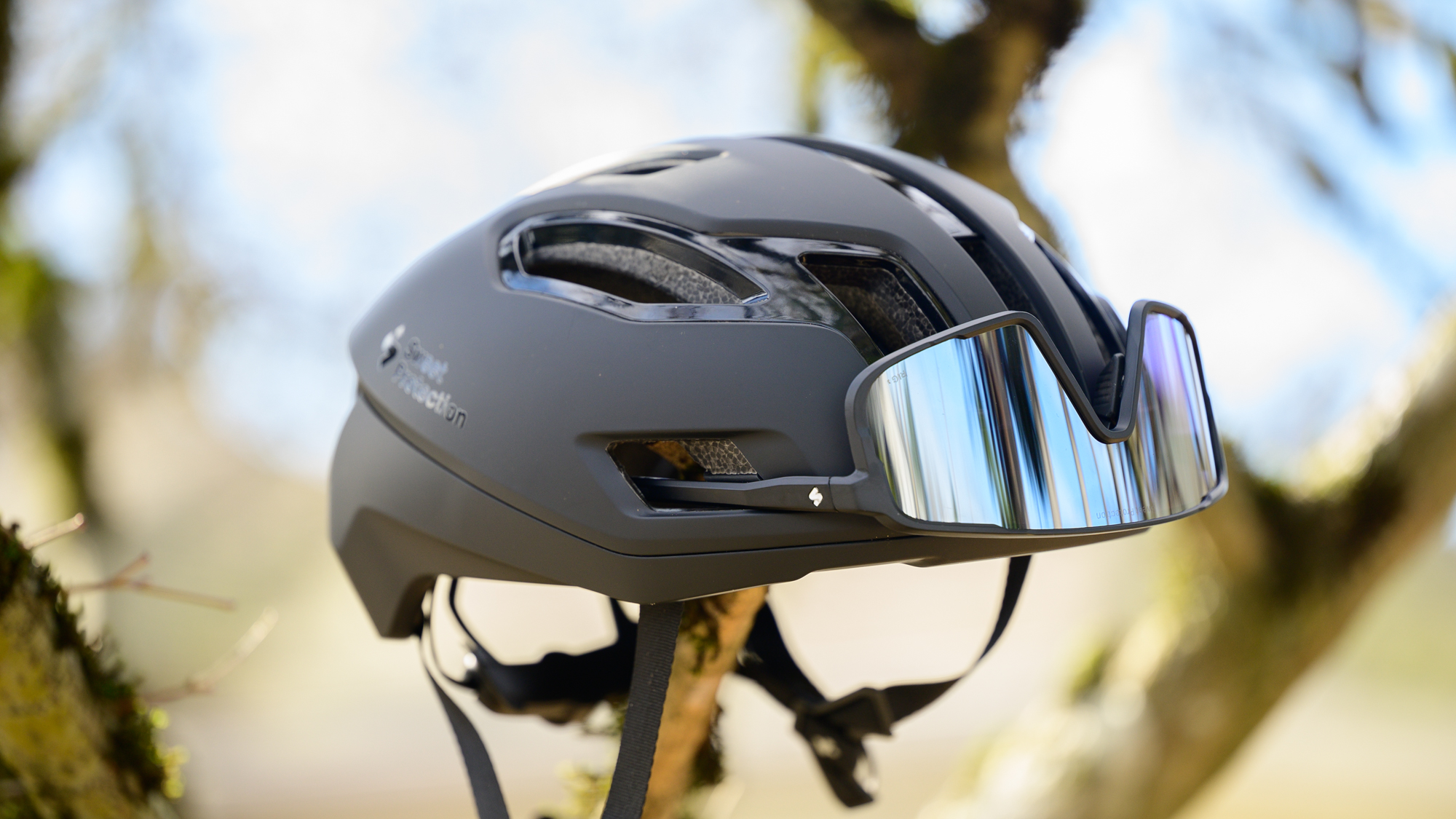
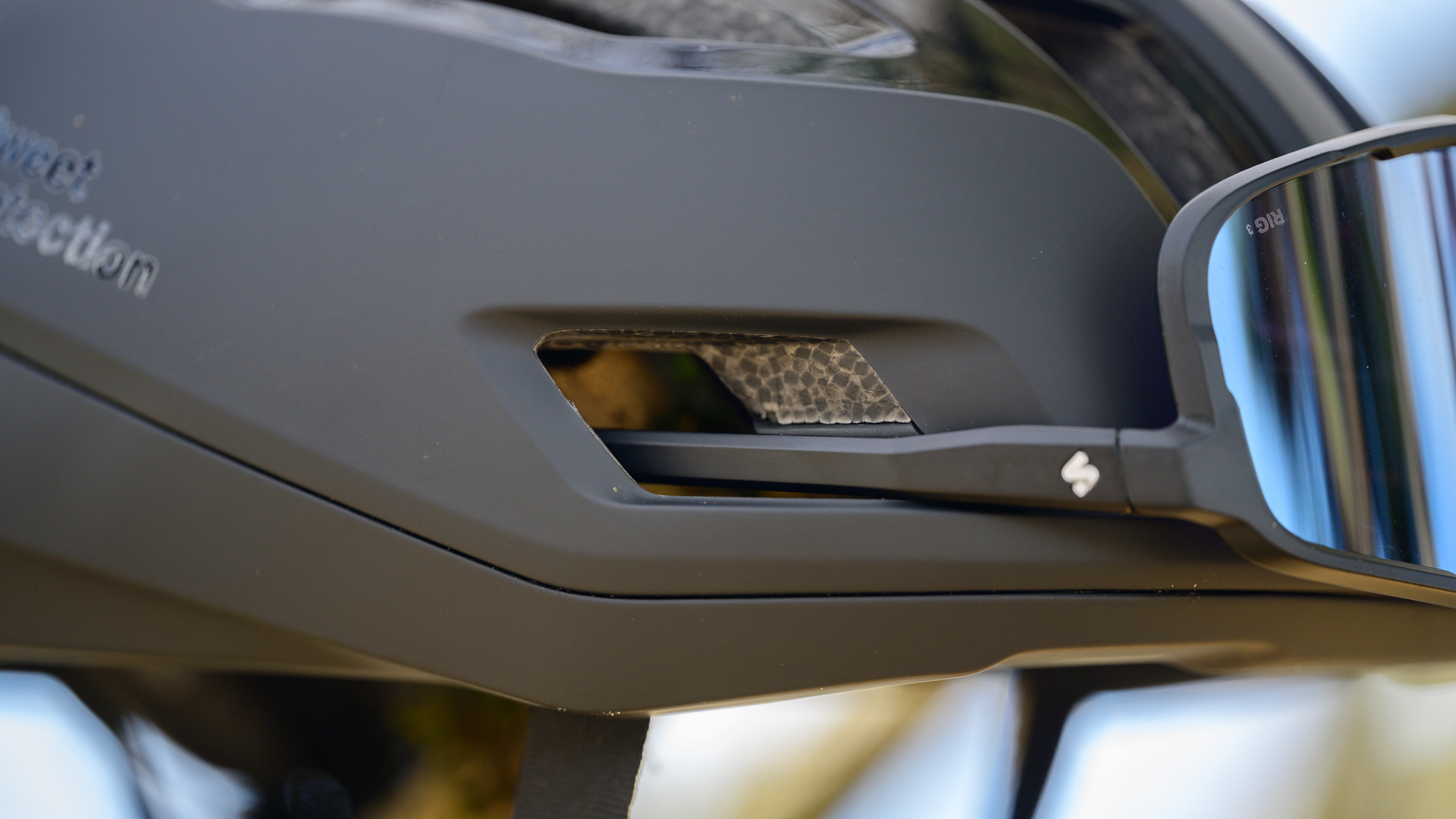
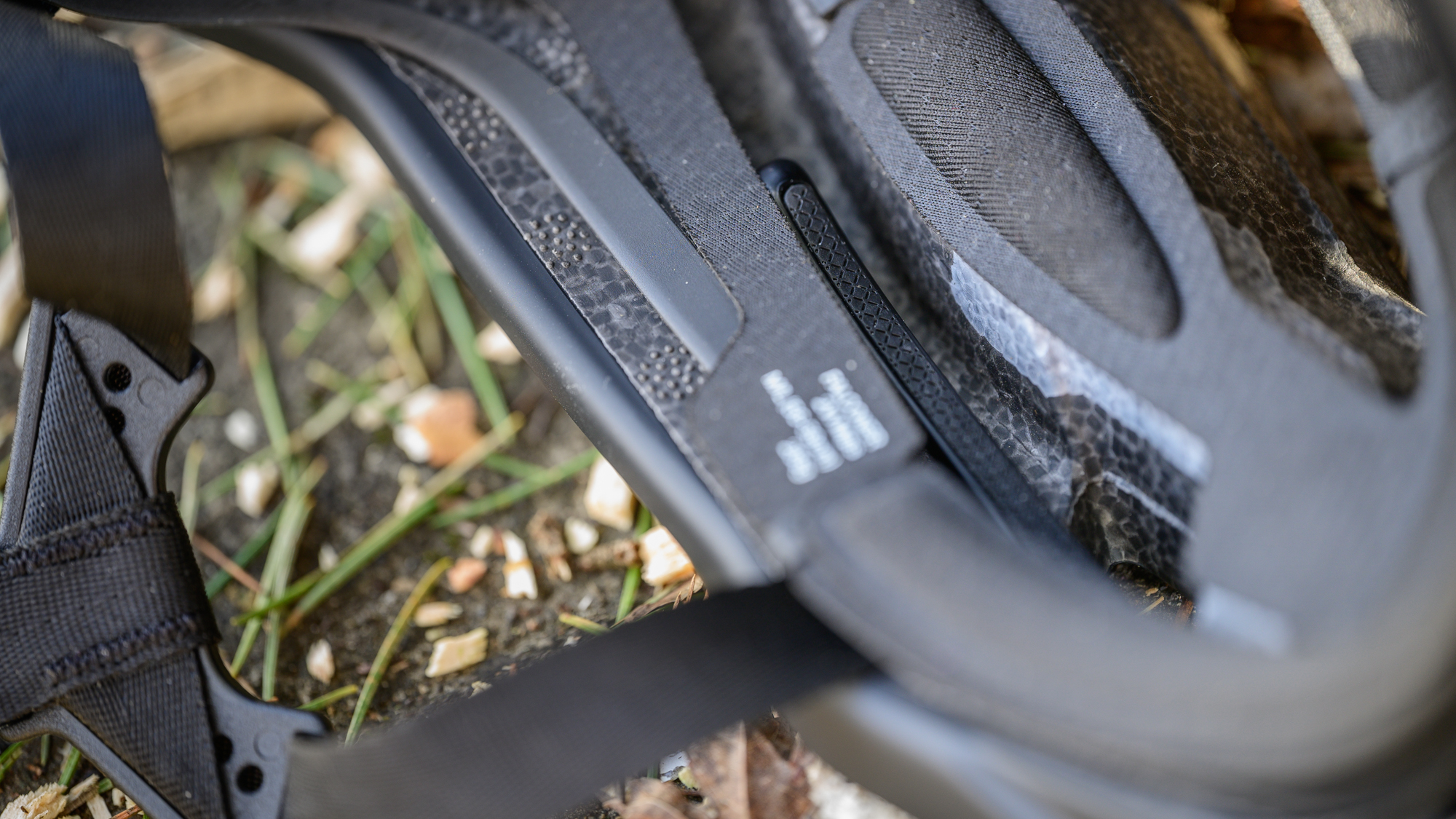
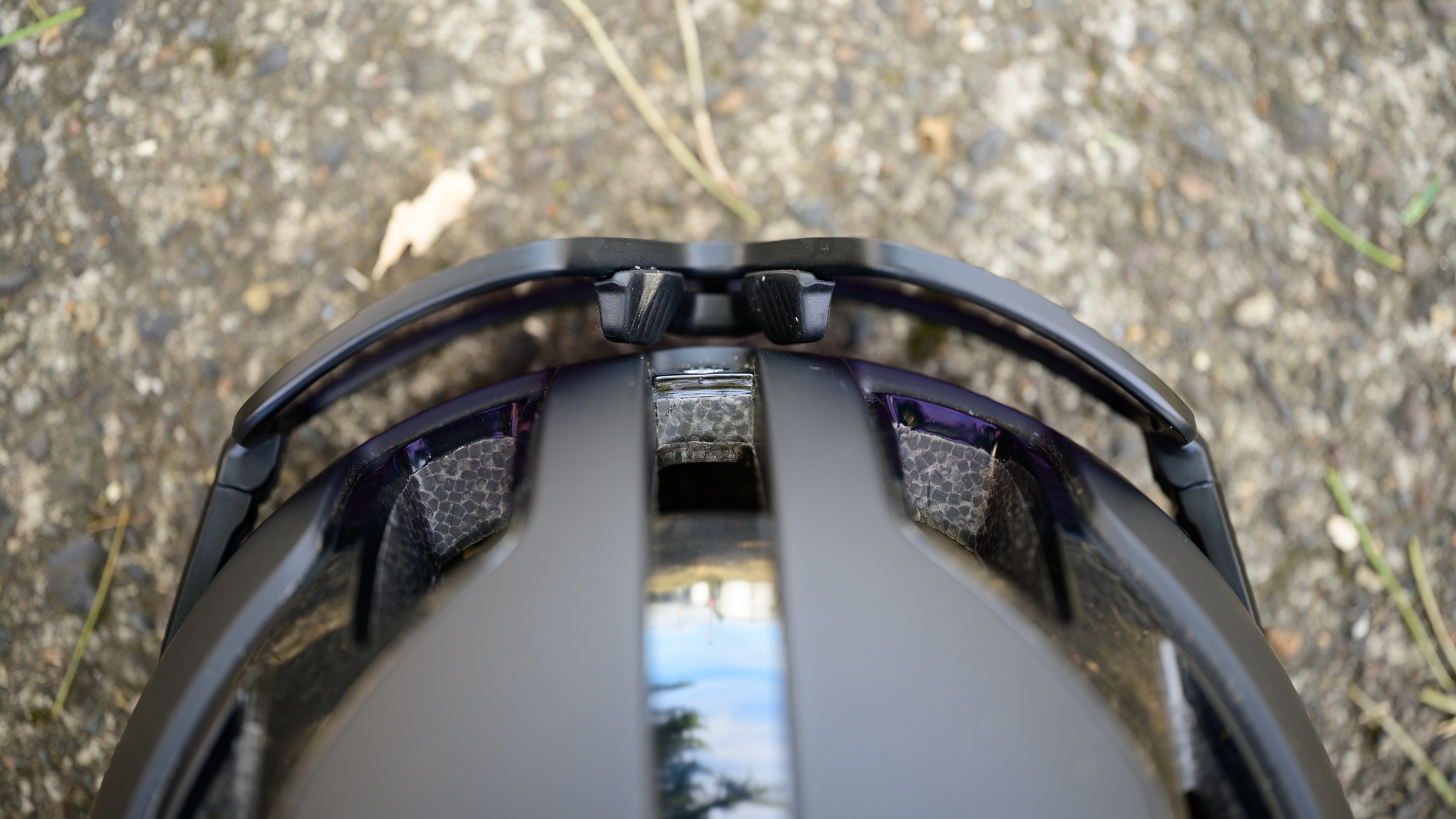
Design and aesthetics
As I mentioned, the first time I saw a Sweet Protection helmet was while riding with people associated with PAS Normal. At the time it was the previous generation Sweet Protection helmets which still used the older style MIPS liners. As before you can still head over to PAS Normal and grab a unique colour of the latest helmet but only if you are looking for an aero version. For those who prefer a bit more ventilation, the Sweet Protection Falconer 2Vi MIPS helmet offers a similar design but plenty of ventilation.
Compared to the previous generation of helmets, the biggest change is the updated MIPS liner. Like other helmets, there's no more yellow liner associated with MIPS. In this case, Sweet Protection is using MIPS Air which mostly looks like a standard set of pads. What provides the rotational impact protection in an MIPS Air helmet is a low friction backing to the normal-looking pads. In the event of an impact that backing can slide across the inside of the helmet without any need for an extra layer.
To allow MIPS Air padding to shift, the pads aren't attached directly to Velcro. Instead, loops capture the padding at specific points and those attach to the rest of the helmet. The combination introduces movement and the low friction backing completes the circle.
The latest race content, interviews, features, reviews and expert buying guides, direct to your inbox!
What's different here is that Sweet Protection added a second set of pads. Instead of using the integrated pads at the front of the helmet, the MIPS layer flattens out and turns into a backing. On top of it is another pad that attaches via Velcro and is easy to remove for washing. While the normal MIPS system isn't impossible to remove, it's interesting to see Sweet Protection go a step further.
It also seems to be part of careful consideration as to how your brow handles sweating against a helmet. The removable pad is actually the last layer of this and in front of the padding you'll find a small piece of plastic that creates an air gap as well as connecting to the 360 Occigrip Fit System. If you keep moving forward, you'll find there's a line cut into the shell of the Falconer helmet that's almost completely open for airflow. As long as you have some movement, the system directs air to the back of the pads.
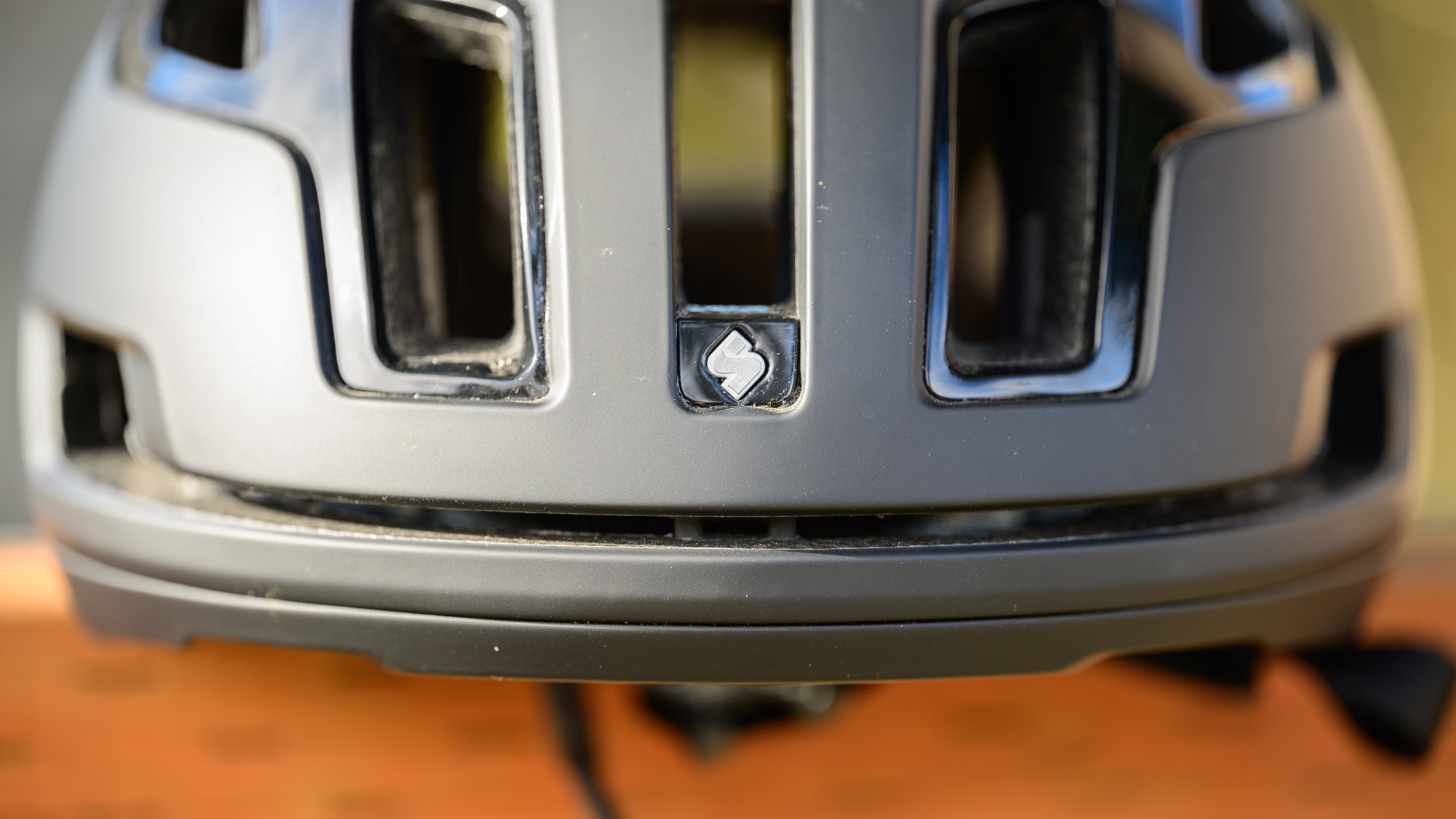
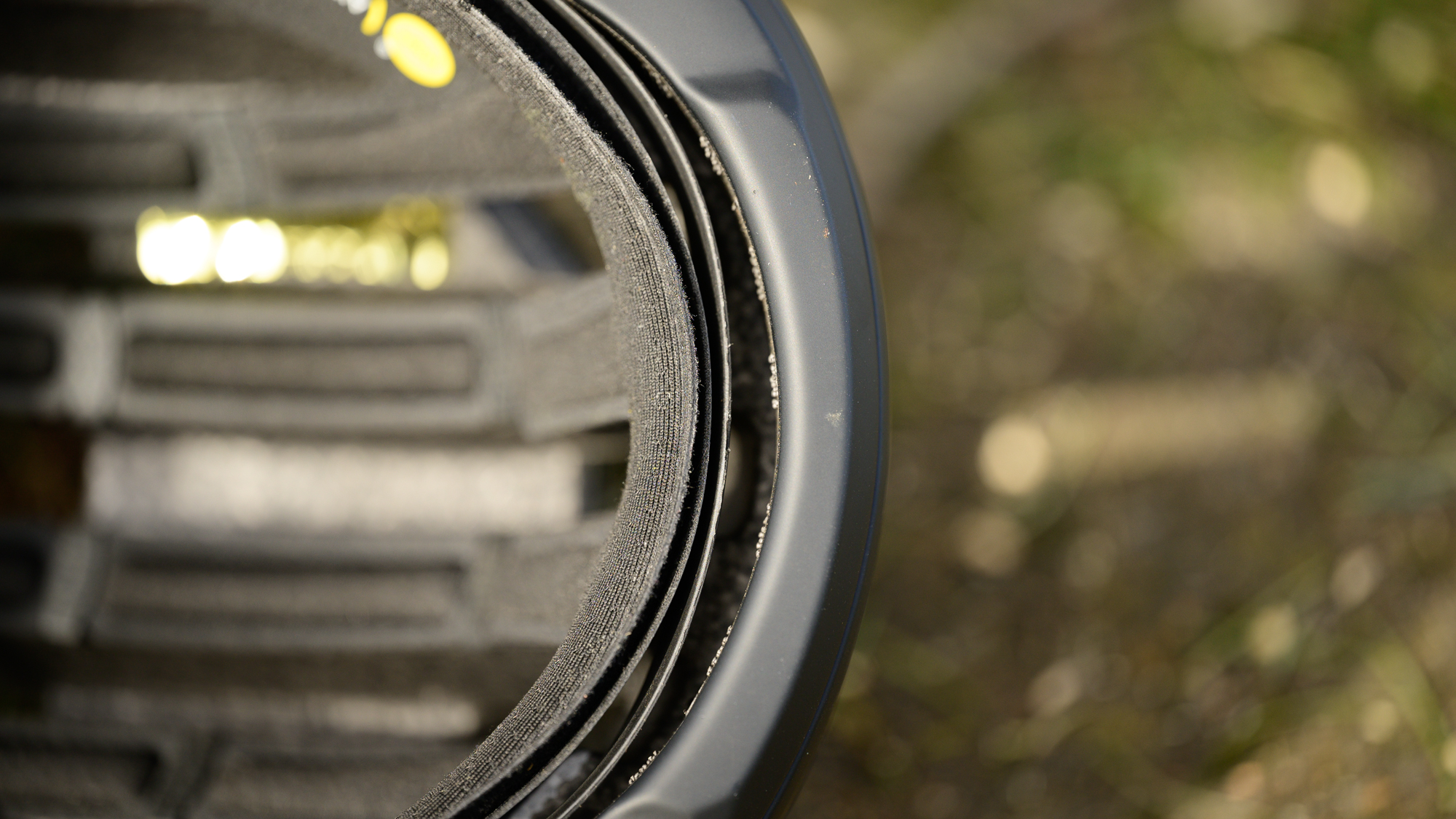
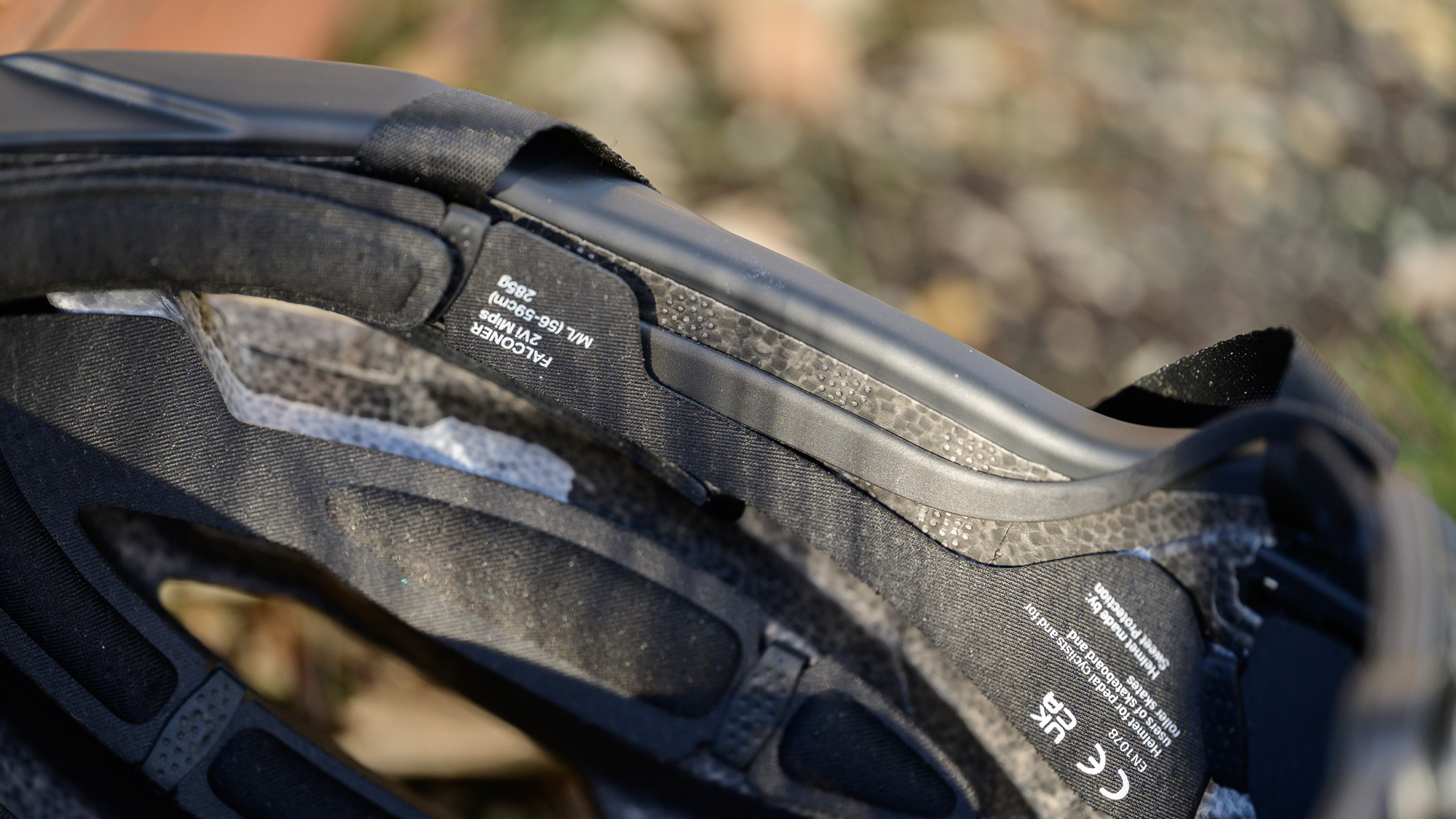
As that line of venting leads to the edges of the helmet, it also leads into the glasses retention system. Most of what that boils down to is that there's a big vent on each side at just the right distance to capture the arms of your sunglasses. The line of brow vents does help it out a bit though as it creates an extra indent to further capture the glasses. It's that point where Sweet Protection then added a bit of rubber so even when you lean forward your glasses won't slide out.
As this is the more ventilated version of the top-shelf Sweet Protection road helmets, those two vents aren't alone. If you move up to the rest of the helmet you'll find a total of 13 vents (including the two side vents already discussed). Seven of those are forward facing with three up top and three in the back acting as exhaust ports. The interior of the helmet has channelling to help move air through it and if you are looking for better aero performance or weather protection, then there are magnetic covers available to close off some of the venting.
No matter if you choose to use the vent covers or not, there's also a system called STACC. The acronym stands for Superficial Temporal Arteries Cooling Channel but it amounts to a specific design choice to pull air across the side of the head. To accomplish this, Sweet Protection keeps the side vents, which also capture your glasses, as a separate system. Air comes in just ahead of your temple and stays in its own channel to the outer exhaust ports in the rear.
The rest of my test helmet upper is a combination of black matte with gloss black offsets in the inserts. There are also options for four different earthy colours as well as white. Logos are minimal, especially in the black version, with only a simple small bit of gloss black with the company name and a tiny bit of metallic text on the rear with the model name. The rear cradle, just below the model name, also has the "S" logo which comes from the common "S" doodle of the 80s.
In terms of the rest of the rear cradle, there are no occipital pads. Instead, the whole cradle acts as a pad with the tightening system slotting in behind. As you tighten it, you can follow its pull around the front of the helmet in a system reminiscent of both Lazer and POC. You can also adjust the rear cradle vertically with a simple pull but it's worth taking some time and doing it off your head. Pull it at an angle and it's possible to pull it loose of a small retaining clip. Part of the whole system is also a focus on space for long hair. It's worth mentioning though, that there are other brands with more space here.
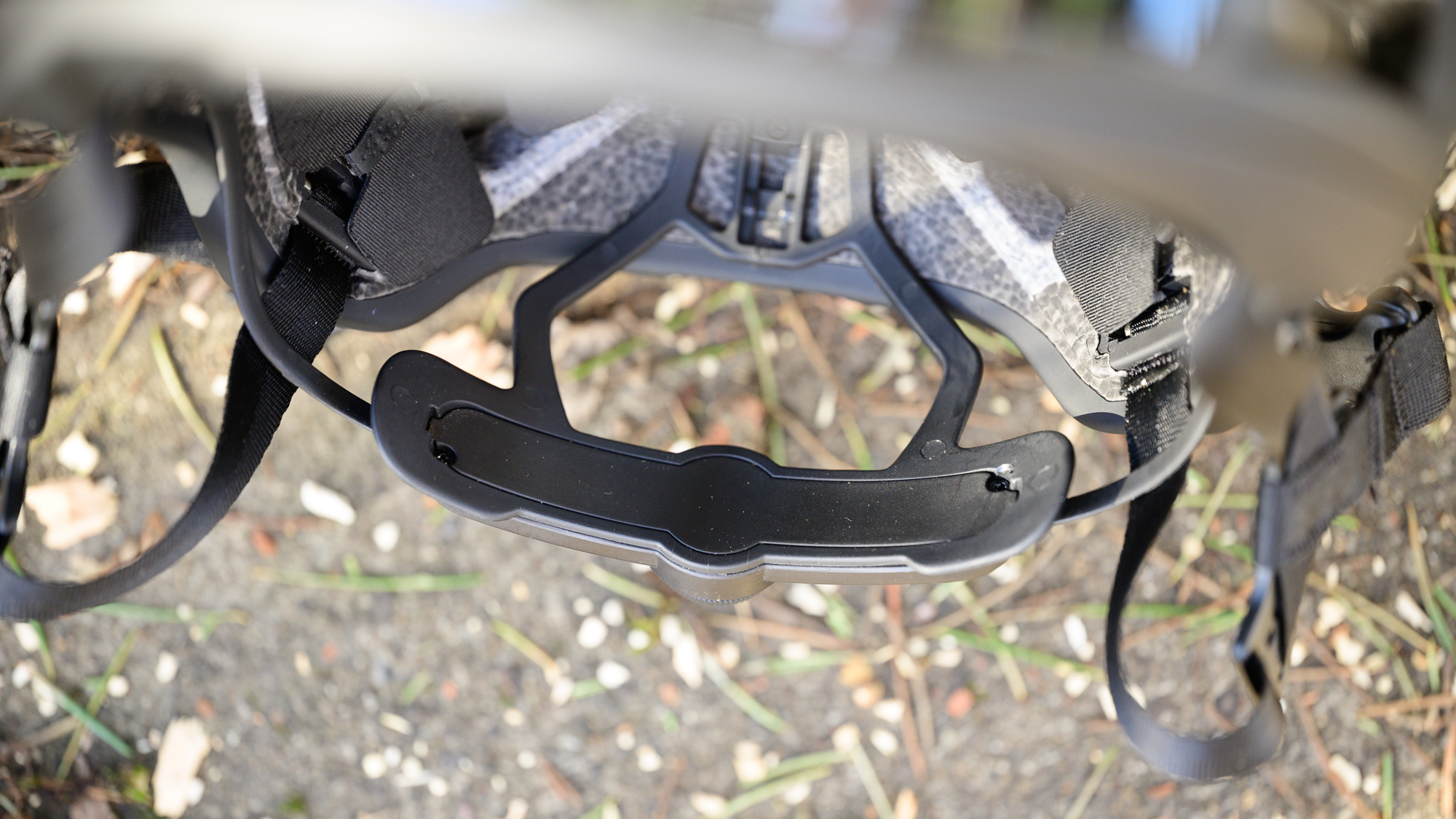
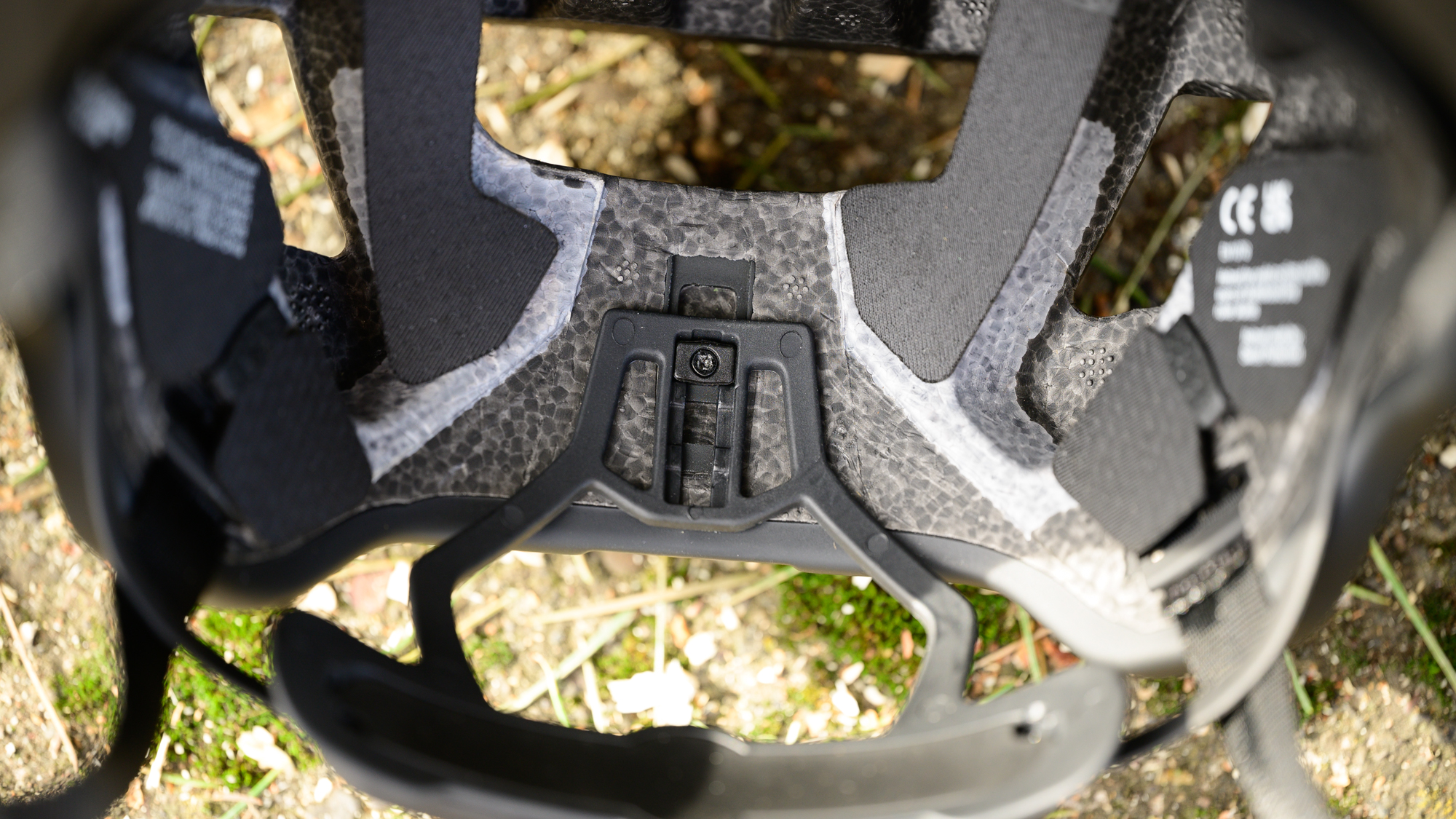
Performance
Over the years that I've been reviewing helmets, there's been one question I consistently get asked. Everyone always wants to know which helmet holds sunglasses securely. Although it's incredibly rare for me to need that feature, I always test it. Through those tests, what I've found is that none do it as well as the Sweet Protection Falconer 2Vi MIPS helmet. I've seen several companies add little friction pads, and so does Sweet Protection, but it's the placement of the vents that does the most here.
No matter how many little tricks a company adds, nothing works better than just having a spot to put your glasses. The STACC ventilation system is there to move air across your temples and that happens to place vents in the perfect spot. It also means independent channeling and that leads to having room to push the glasses into the helmet.
Perhaps it's because Sweet Protection makes excellent sunglasses as well, I tested the Memento RIG Reflect with this helmet, but the brand seems to get it. Flip your glasses upside down and push them into the helmet. It's not hard to locate the spot and you can push them all the way in until the nose pads wrest against the front. The little bit of rubber ensures they will not move even if you drop your head.
The reason I started this section with those details is because it's one of the questions I get asked, a lot. That said, there is more to the Sweet Protection Falconer 2Vi MIPS. The way it manages glasses storage happens to be a stand-out feature but beyond that it's a generally pleasant and stylish helmet to wear and number two with Virginia Tech isn't a bad place to be.
If I'm looking for other stand-out features, the venting at the front of the helmet is another feature that jumps to mind. The sweatiest place on your head in any helmet is always the front brow and Sweet Protection has prioritised this area. The 360-degree tightening concept is something several brands make noise about and yet I rarely find it that important. In this case, Sweet Protection used it to create an air gap for airflow behind the padding then put venting right in front of it. The whole system is genius on the hottest days.
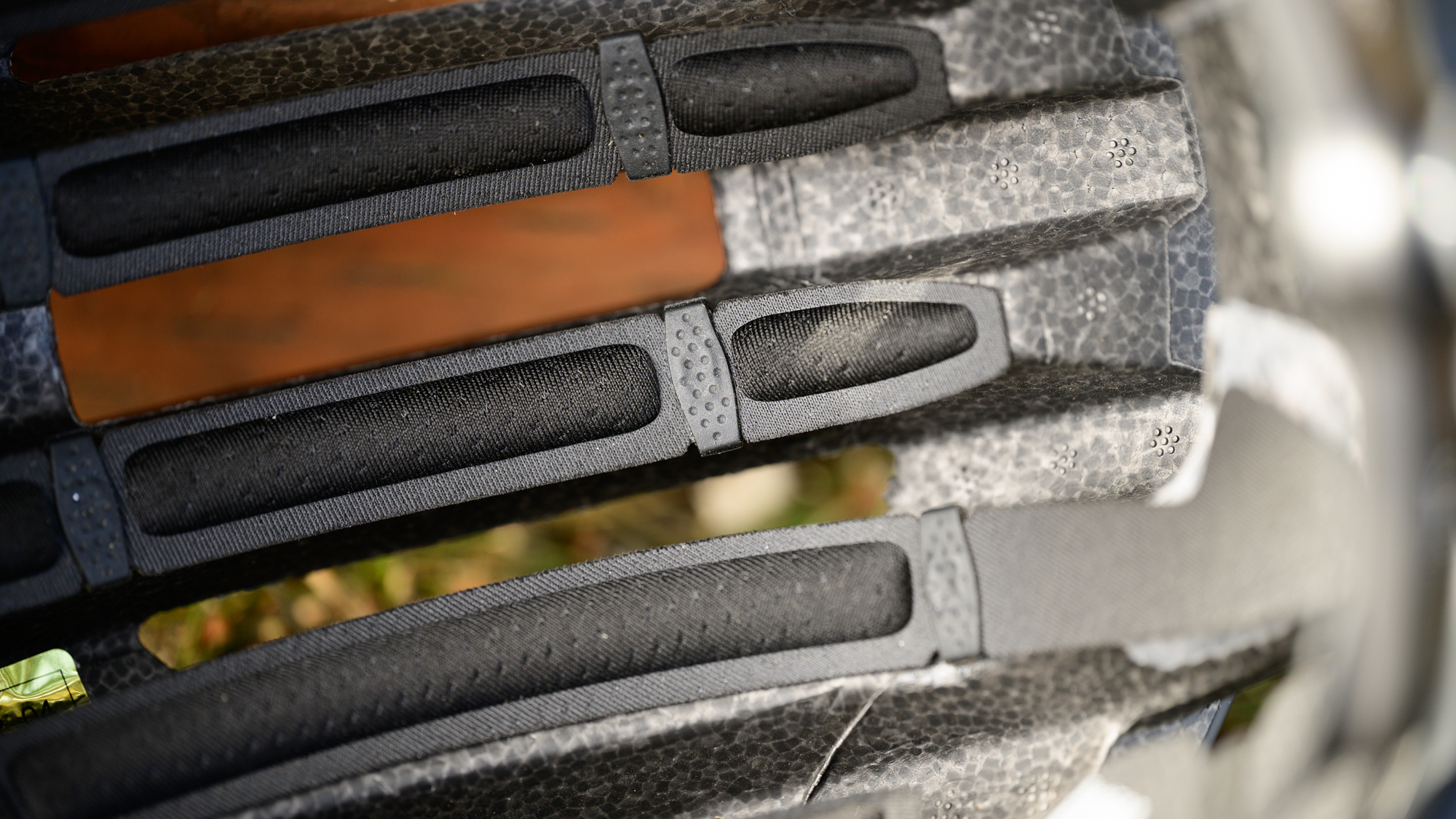
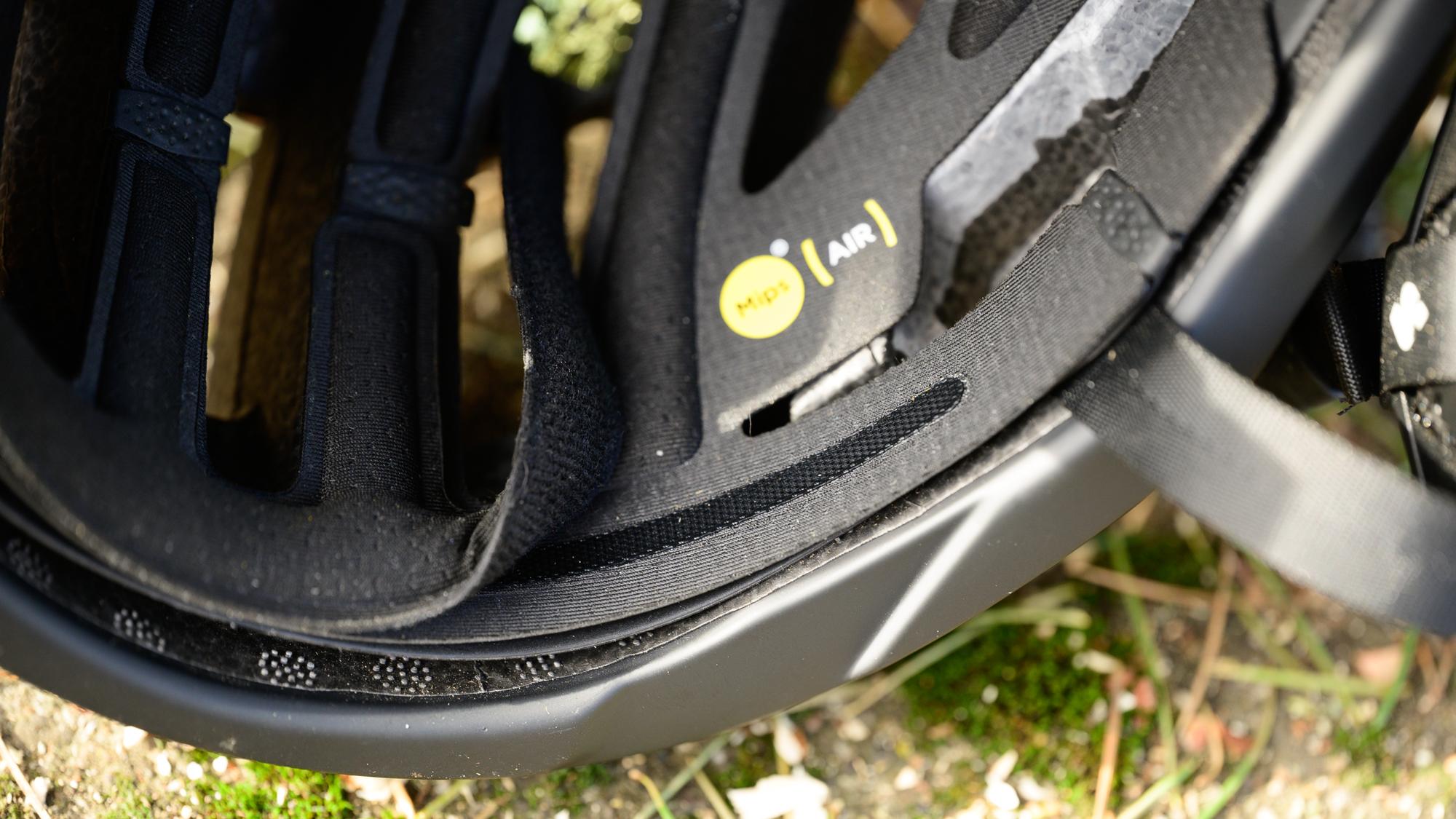
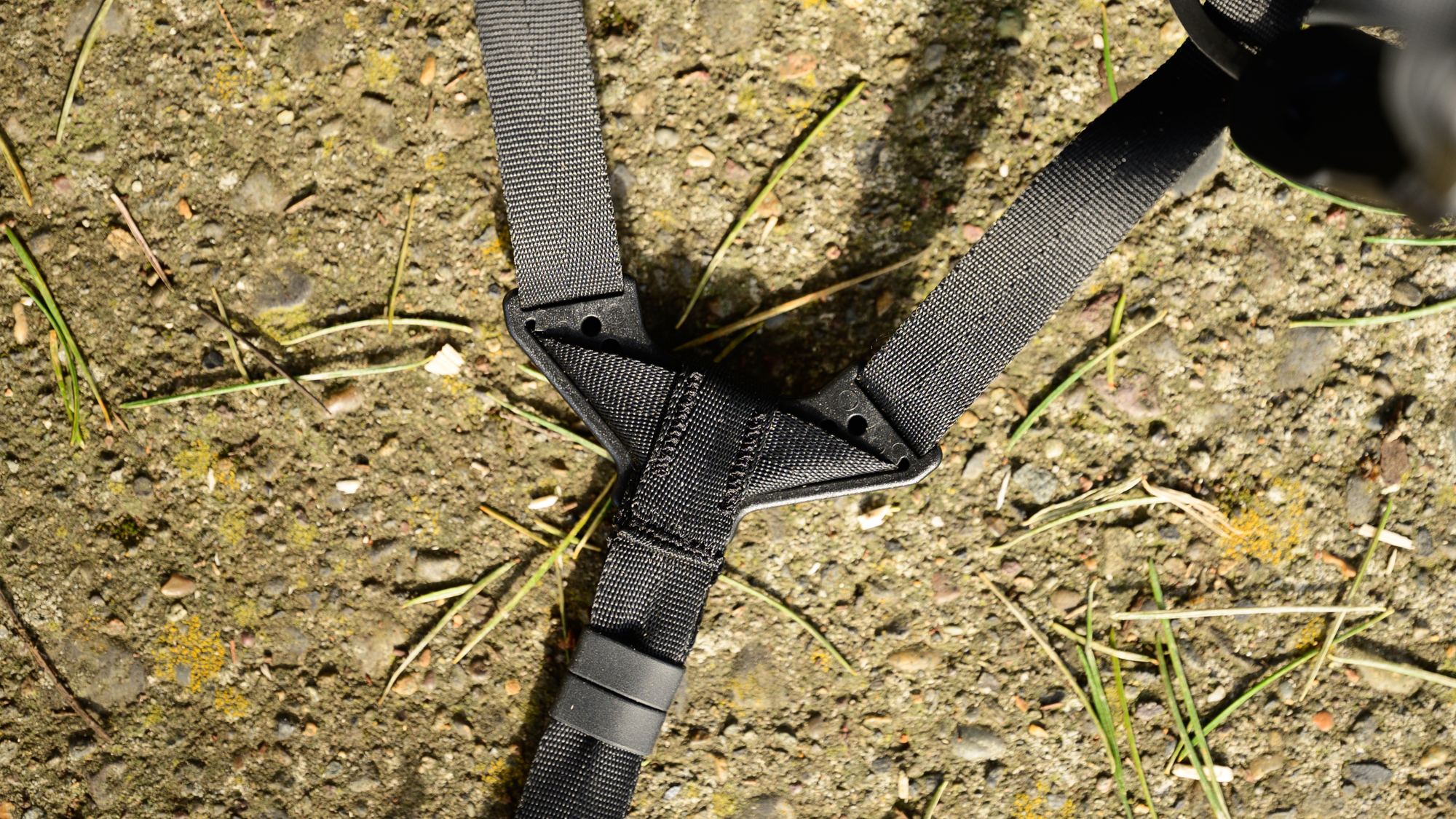
Given that the system is so good, and it exists on the aero version of the helmet, this version with extra ventilation seems a little unnecessary. Despite that, it still might make sense to stick with the Falconer 2Vi MIPS as there are vent covers available. The magnetic covers pop into place over the main vents and when in place, there's very little difference between the two versions of the helmet.
On top of that flexibility, another advantage of sticking with the Falconer 2Vi MIPS, non-aero version, of the helmet is that it's a bit lighter. The numbers aren't drastic, only 15 grams, but I always appreciate a lighter helmet and every little bit helps. Even with the stellar Virginia Tech rating the Falconer manages to sit close to your head and without much physical or visual bulk.
Also appreciated, that low bulk when combined with the matte black colourway, keeps the Falconer helmet looking rather understated. I appreciated the way I was able to pair this helmet with a wide range of sunglasses and different styles of jerseys. Stylistically it works with a gravel bike and a technical T-shirt but it also works with an aero bike and race-fit jersey. Helmets are expensive so that kind of adaptability is a good thing.
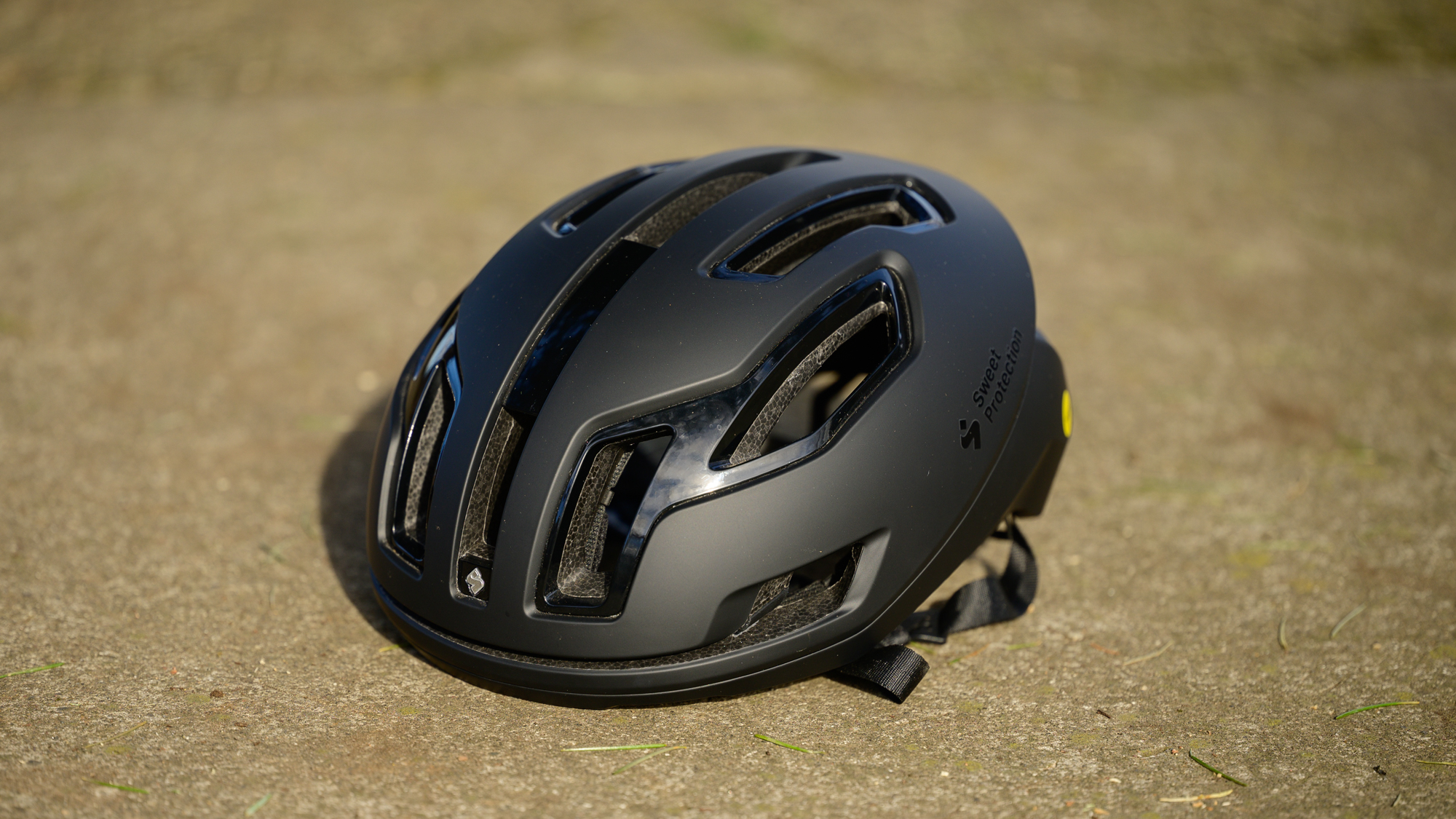
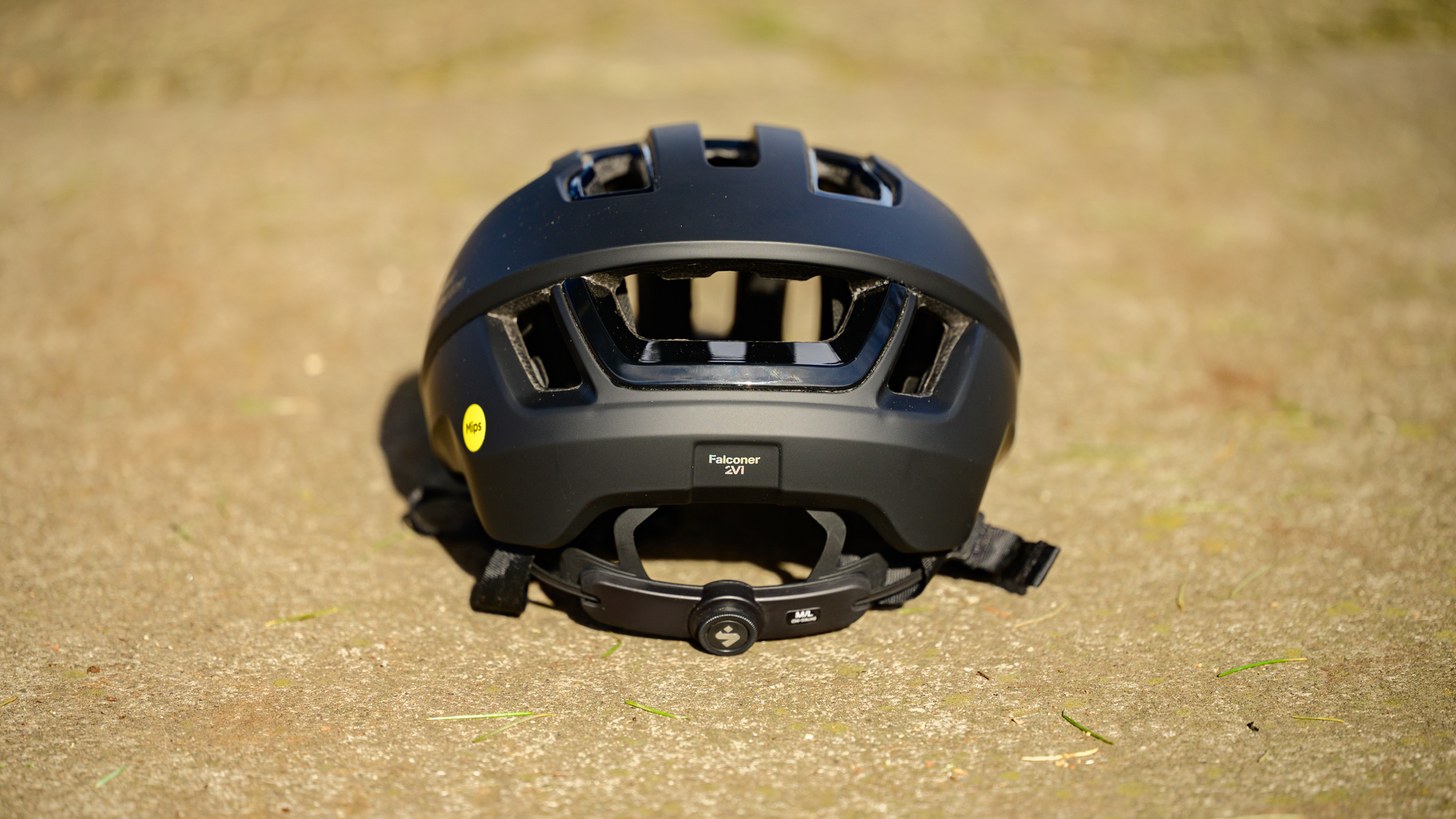
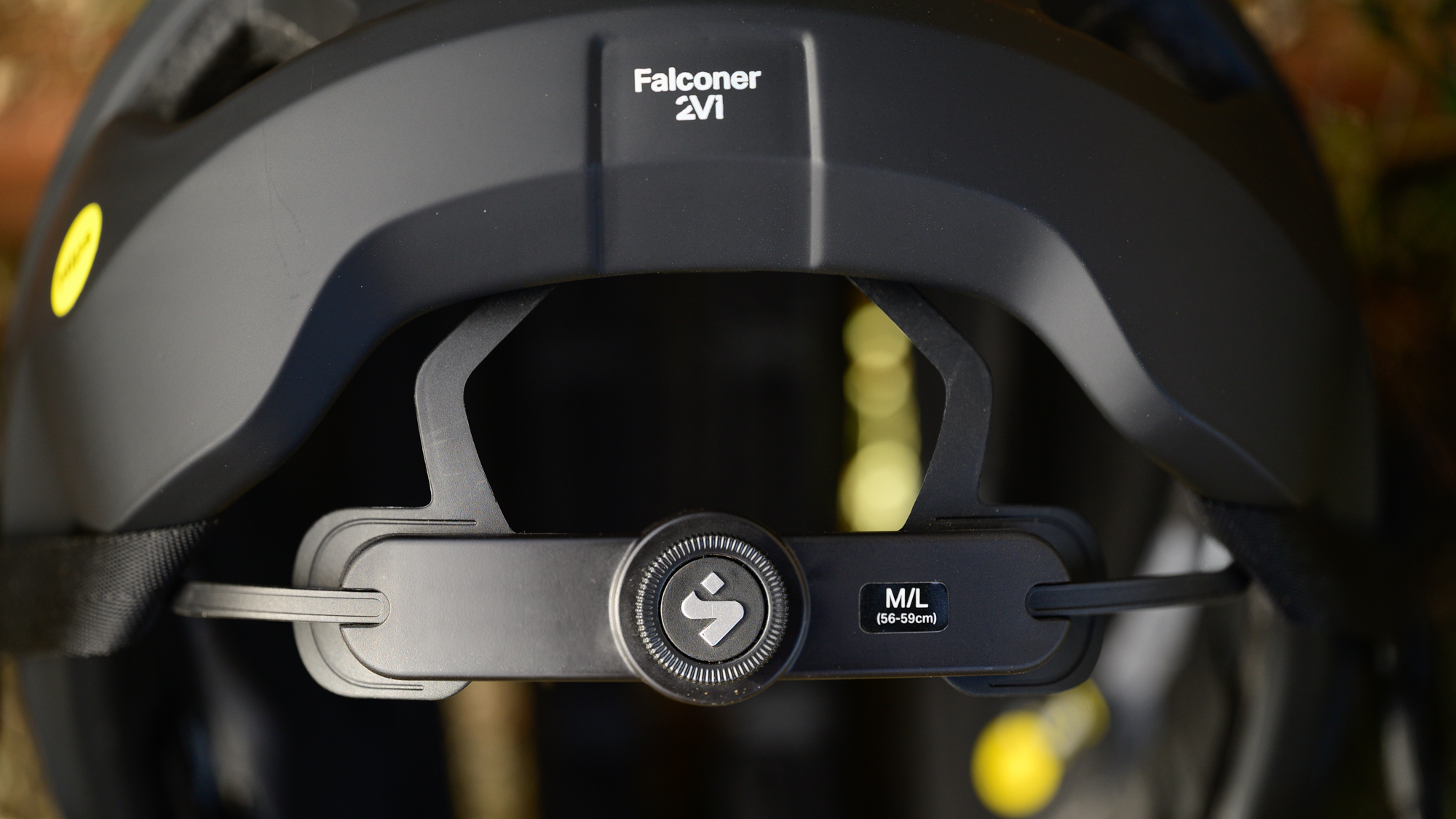
Verdict
Sometimes when products are good at a wide variety of things, they get less attention. The Sweet Protection Falconer 2Vi MIPS helmet is a perfect example of that. There's no standout aero claim I can talk about, it's not quite the lightest, and there's understated styling. It doesn't help that Sweet Protection is a newer brand that's not as big or as well-known as some.
When you start wearing the Sweet Protection Falconer 2Vi MIPS helmet, that's where things change a bit. I might not store my glasses on my helmet much but for a lot of people that feature is incredibly important and Sweet Protection is the best. Beyond that, it's low bulk and incredibly well-ventilated. I love that the vent covers exist and I love that the various pieces of the straps aren't attached which makes adjustment less complicated. If you are looking for a good all-around helmet you can wear on a road or gravel bike the Sweet Protection Falconer 2Vi MIPS helmet is an excellent choice.
| Design and aesthetics | It’s understated but I’m a big fan of its ability to shift between different glasses and different bikes. I only took a point off because I prefer a more focused design. If it’s aero, how much? If it’s not then say it. | 9/10 |
| Comfort | Super comfortable but even though ponytail space gets a call out in the marketing, Kask and Trek both do it better. | 9/10 |
| Ventilation | The Lazer Z1 Kineticore is a bit more ventilated but this helmet has some great features aimed at keeping you cool. | 9/10 |
| Safety | Almost the top spot with Virginia Tech. | 10/10 |
| Value | The non-aero version is cheaper, lighter, and more usable with different styles of riding. Pricing is on the low side of premium plus there’s good value. | 10/10 |
| Overall | Row 5 - Cell 1 | 92% |
Josh hails from the Pacific Northwest of the United States but would prefer riding through the desert than the rain. He will happily talk for hours about the minutiae of cycling tech but also has an understanding that most people just want things to work. He is a road cyclist at heart and doesn't care much if those roads are paved, dirt, or digital. Although he rarely races, if you ask him to ride from sunrise to sunset the answer will be yes.
Height: 5'9"
Weight: 140 lb.
Rides: Salsa Warbird, Cannondale CAAD9, Enve Melee, Look 795 Blade RS, Priority Continuum Onyx
